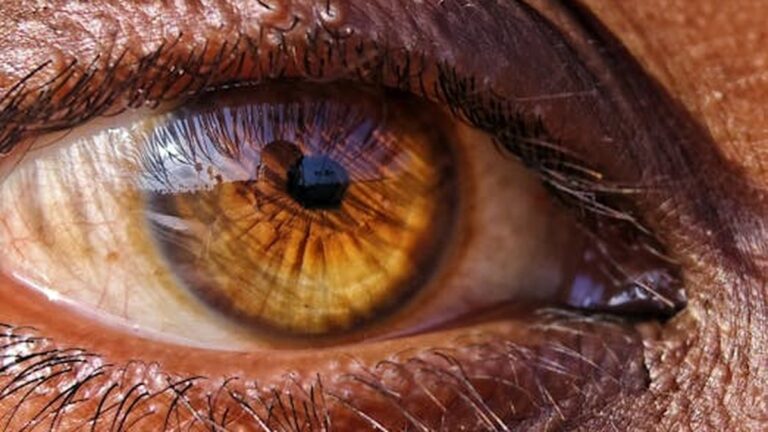The Rise of Biohacking for Wellness: Ethical Considerations and Practical Applications
Introduction to Biohacking for Wellness
The pursuit of optimal health and well-being is a timeless human endeavor. Today, a growing movement known as biohacking is gaining momentum, offering individuals the tools and techniques to take control of their own biology and enhance their physical and mental performance. But what exactly is biohacking, and is it right for you? This article dives into the practical applications, ethical considerations, and potential risks associated with this fascinating trend.
Biohacking, at its core, is about understanding and manipulating your own biology using a combination of science, technology, and self-experimentation. It’s a highly personalized approach to wellness, emphasizing data-driven decisions and a proactive mindset. While the term might conjure images of futuristic labs, many biohacking practices are surprisingly accessible and can be integrated into everyday life.
Understanding Biohacking: What is it Really?
Biohacking encompasses a wide range of activities, from simple lifestyle changes to more advanced interventions. It’s about optimizing various aspects of your health, including sleep, nutrition, cognition, and physical performance. The goal is to achieve a state of enhanced well-being and longevity.
Types of Biohacking
- Nutrigenomics: Understanding how your genes interact with your diet and tailoring your food choices accordingly.
- DIY Biology: Experimenting with genetic engineering and synthetic biology (often in non-professional settings). This carries significant biohacking risks if not done with proper safety protocols.
- Nootropics: Using supplements and drugs to enhance cognitive function, memory, and focus.
- Quantified Self: Tracking various health metrics (sleep, heart rate, activity levels) to identify patterns and optimize behavior.
- Intermittent Fasting: Cycling between periods of eating and fasting to improve metabolic health and cellular repair.
Practical Applications of Biohacking for Wellness
One of the most appealing aspects of biohacking is its potential to improve various aspects of your life. Here are some practical applications you can consider:
Optimizing Sleep
Sleep is crucial for physical and mental health. Biohacking techniques for improving sleep include:
- Using blue light blocking glasses in the evening.
- Optimizing your sleep environment (dark, quiet, cool).
- Tracking your sleep cycles with a wearable device.
- Supplementing with magnesium or melatonin.
Enhancing Cognitive Function
Many people turn to biohacking to boost their cognitive abilities. This can involve:
- Using nootropics like L-theanine and caffeine.
- Practicing mindfulness and meditation.
- Engaging in brain training exercises.
- Optimizing nutrition for brain health (e.g., consuming omega-3 fatty acids).
Improving Physical Performance
Biohacking can also be used to enhance athletic performance. This might include:
- Using wearable technology to track training metrics.
- Optimizing nutrition for muscle growth and recovery.
- Experimenting with different training protocols (e.g., high-intensity interval training).
- Using cryotherapy or infrared saunas for recovery.
Example: The Power of Cold Exposure
A simple yet effective biohacking technique is cold exposure. Studies have shown that cold showers or ice baths can increase alertness, boost the immune system, and improve mood. While it might sound unpleasant, many biohackers swear by its benefits.
Ethical Considerations of Biohacking
As with any technology that alters the human body, biohacking raises several ethical concerns. It’s crucial to consider these issues before embarking on your biohacking journey.
Safety and Regulation
One of the biggest concerns is the safety of biohacking practices. Many DIY biohacking activities lack proper regulation and oversight, which can lead to unforeseen risks. The biohacking risks associated with untested or poorly understood interventions are significant.
Equity and Accessibility
Many biohacking technologies and supplements are expensive, which could create a divide between those who can afford to enhance themselves and those who cannot. This raises questions about fairness and equal access to health optimization.
Potential for Misuse
The ability to manipulate our biology could be misused for unethical purposes. For example, human augmentation technologies could be used to create unfair advantages in sports or other competitive fields.
Data Privacy
Biohacking often involves collecting vast amounts of personal health data. Protecting this data from unauthorized access and misuse is essential.
Navigating the Ethical Landscape of Biohacking
To ensure that biohacking is used responsibly, it’s crucial to:
- Prioritize safety and conduct thorough research before trying any new intervention.
- Be transparent about your biohacking activities and share your experiences with others.
- Advocate for responsible regulation and oversight of biohacking technologies.
- Consider the potential ethical implications of your actions and strive to use biohacking for the greater good.
Biohacking: Is it Right for You?
Biohacking offers exciting possibilities for improving health and well-being. However, it’s not a one-size-fits-all approach. It requires careful consideration, thorough research, and a willingness to experiment and learn.
Tips for Getting Started with Biohacking
- Start small: Begin with simple lifestyle changes like optimizing sleep or improving your diet.
- Track your progress: Use wearable devices or journals to monitor your results.
- Consult with a healthcare professional: Discuss your biohacking plans with your doctor or a qualified healthcare provider.
- Be patient: It takes time to see results from biohacking interventions.
- Stay informed: Keep up-to-date on the latest research and developments in the field.
Conclusion: Embracing Responsible Biohacking for Wellness Optimization
Biohacking is a rapidly evolving field with the potential to revolutionize healthcare and wellness optimization. By understanding its principles, considering its ethical implications, and adopting a responsible approach, you can harness the power of biohacking to enhance your health and well-being. Remember to prioritize safety, consult with healthcare professionals, and stay informed as you explore the exciting world of DIY biology and personal optimization. The future of health is in your hands.
References
-
Centers for Disease Control and Prevention (CDC)
– Leading national public health institute of the United States. -
World Health Organization (WHO)
– Global authority on international public health. -
Mayo Clinic Healthy Lifestyle
– Evidence-based health advice from medical experts.






